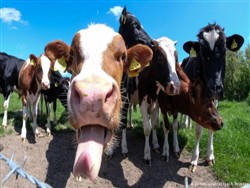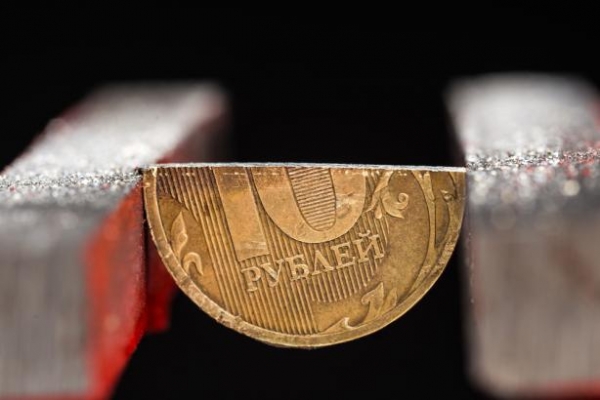
“Behind two of the most difficult years we ever had,” said this week that albert Schulte Brink (Albert Schulte to Brinke), a dairy farmer from Lower Saxony and Vice-President of the land Department of the German farmers Union (DBV). And although he believes that the crisis in the dairy industry has not yet ended, qualitative improvement is still obvious: retail and, accordingly, selling prices went up sharply.
Aldi raises the price by more than 40 percent
Aldi, the leading German discounter and the legislator of prices in the food market of Germany, November 1, increased by more than 40 percent. A liter of milk now costs 0,65 Euro to 19 Euro cents more than before. At the same time rose and various dairy products. A pound of fat-free cottage cheese, for example, buyers pay now in supermarkets Aldi 0,79 0,55 Euro instead. After the leader tags in a few days is usually changed and other German stores.
That, from the consumers point of view looks like a frightening price spike, is actually just a return with abnormally low in usual level – about where they were two years ago before they began their ruinous for farmers fall below cost. This collapse was caused by a number of reasons.
On the one hand, farmers in Germany and other EU countries in the hope of a considerable increase in the exports of their products increased significantly in the last few years the number of livestock and milk production, especially because the European Union from 1 April 2015 abolished the effect on over three decades of restrictive quotas.
The closure of the Russian market has exacerbated the crisis of overproduction
On the other hand, hopes for a boom in sales outside of the EU milk powder, cheese, butter and other dairy products were not met in full. Pumped up the most important export markets. China’s slowed economic growth, and fell the exchange rate of the national currency in the Arab countries because of much cheaper oil decreased purchasing power, and Russia on 6 August 2014, imposed an embargo on food supplies from Western countries, including the European Union.
Thus, the dairy industry was the segment of the European and German agriculture, which is most visibly affected by the Russian embargo, as the closure of a large market overnight has exacerbated the rapidly growing crisis of overproduction (the European consumers, respectively, at purchase of dairy products would benefit from accepted by the Moscow measures).
Note at the same time that the second group of victims were producers of fruit and vegetables in Eastern and southern Europe (to a lesser extent in Germany). Notable losses were also breeders. However it is connected not with embargo, but with a full ban on the import into Russia of pork from the EU under the pretext of the fight against African swine fever. This protectionist measure was taken in January 2014, six months before the embargo.
The German government helps in overcoming of consequences of crisis
But back to the dairy industry. Were “the two most difficult year”, and began the normalization of price situation. At least in Germany. This has occurred primarily because of production cutbacks. Moreover, increased exports because the world market has declined the proposal. The role played by large-scale buying of milk by the European Union to increase the stock of milk powder.
The main reason for the reduction of milk production in Germany – a conscious, deliberate actions most households. But not without the ruin of the peasants. Over the past two years, according to the Ministry of agriculture of Germany, the country was closed 5 000 dairy farms, 2 000 of them only in the period from November 2015 to may 2016. As a result, the number of dairy farms decreased to 71 300. However, the number of cows is not decreased, and remained at the level of 4.3 million animals. In other words, the crisis led to concentration of production.
The return of prices to a level that more or less ensure profitable milk production is not an end to the crisis in the industry, says the farmer and the functionary DBV albert Schulte the Brink, and the German government agrees with him.
Therefore, on 2 November, it approved the allocation until the end of 2017 in addition to the steps already undertaken another 581 million euros for the support of the German dairy farms. This package includes funds from the budgets of the EU and Germany, tax incentives, subsidies for the farmers insurance against accidents and loan guarantees. Indeed, many farmers had to survive, to get into large debts.
So to lick their wounds from the crisis, exacerbated by the Russian embargo, have long. And there is no guarantee that it will not recur: the overproduction of milk – a long-standing problem of the EU. But with Russia it will not be linked: the dairy industry of Germany for two years, have adapted to the fact that the market of this country it entered was shut.








